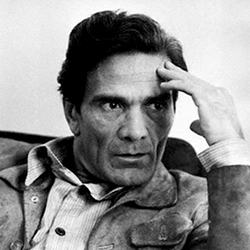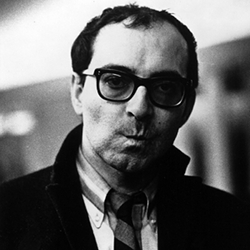
TV Recap: Girls, “Deep Inside” (3.4)
26/1/2014, 10:00 pm (EST), HBO
The biggest stride that Girls has made so far in its third season is in reassuring the audience that it gets how awful its characters can be. Lena Dunham’s work has always been incredibly personal, and while I thought that she communicated the distance between herself and her character fairly well in the show’s first few seasons, this is a whole different level. In some ways, in fact, I wonder if this new increased sense of detachment might be the show going too far out of its way to let us know it knows how awful its characters are. “Deep Inside” is the most constant barrage of horrible behavior we have seen so far this season, with Hannah’s callousness, Jessa’s discovery that a former friend faked her death to get Jessa out of her life, and Marnie’s temper tantrum at Ray. While the show may be pushing a little too hard to remind us these are flawed people, “Deep Inside” also tells an interesting, if frustrating, story about Hannah’s attempt to process death.
Because this is Hannah, her first thought when her editor David dies is about what will happen to her book. Yet over the course of the episode, her reactions to the death shift constantly to fit how she thinks she should act in the situation or how she hopes she might gain some benefit from it. Quickly, David goes from some guy she didn’t even invite to her birthday to her “close friend and collaborator” as she tries to mine everything possible out of his death. She gets to leave work early, gets sympathy from Laird, and generally seems to be having a pretty good day with he and Caroline. Basically, Hannah processes the death of her editor like the monster that everyone in the episode constantly accuses her of being.
Yet here, I think, is where the episode actually uses this season’s increased focus on detachment to its advantage. Hannah is not a sociopath, not really. She’s just an insanely self-centered 25-year-old who thinks of herself as a writer. But unlike Marnie’s fantasies of a singing career, Hannah actually is a writer, and that comes with a certain level of emotional detachment. For a certain subset of people, emotions are better processed at a distance and on the page, and while Hannah is too busy being outraged at everyone who is surprised by her apparent callousness to realize that, this is probably the case for her. The way the episode approaches this truly synced for me when Hannah was stressing to Caroline that she needed her feelings as a writer, without even realizing that her whole problem in this episode is that she didn’t have the feelings all of her non-writer friends were having.
I’m not sure this fully worked for me, in part because of the episode’s button, where Hannah coopts Caroline’s invented story of tragedy to convince Adam she actually has feelings. This is definitely the sort of thing Hannah would do in this situation, and I loved the way Adam Driver played the scene, as if he both totally doesn’t believe the story and sort of can’t believe the woman he loves is doing something like this to him, but it feels like a deeply weird way to end the episode. We see plenty of people call Hannah on her shit here, to the point where I was rolling my eyes and thinking “we get that you get it,” but instead of Hannah learning something or failing to learn something (which, to be fair, she sort of does), the story mostly seems to end at about three-quarters of the way through its natural development. I have no problem with Hannah feigning feelings as a story point, but it didn’t feel conclusive, especially with the way Adam was reacting in the scene. If Hannah pulls off her bald-faced lie and Adam forgives her, that is an adequate story. If he sees right through her (as I think he did) and calls her on how awful she’s being, and the two have a real conversation about the ways they both process feelings, that too is an actual ending. But what we got here felt unintentionally ambiguous in a way that I think underserved what the rest of the episode was doing.
Meanwhile, Jessa continues her lack-of-sympathy tour of the detritus she leaves in her path. Watching her confront people who have decided to take drastic measures to avoid seeing her, and then mostly act disaffected by their rejection is actually the closest thing we have seen to character progress for Jessa on this show. Weirdly, by having her do a little less, the show has let us understand her a whole lot more. The way Jessa walks through the world, cloaking her thinly-veiled rage beneath a layer of cynical detachment, as if no rejection could possibly phase her turns her into a much more tragic figure in the series narrative than I had previously realized. She feels like any number of monstrous titans that have graced the stage in big, bombastic plays, lashing out at anyone who comes near them only to end up completely alone in the world. But unlike most of those characters, Jessa has done all of this very quickly, and finds herself looking upon her works in despair from a pretty low vantage point in her mid-twenties.
I don’t buy the idea that Season faked her funeral as a real-world plot point in the least, but then, I don’t need to for it to work. The show isn’t selling us on the veracity of this moment or what it says about this long-dead friendship. It’s trying to communicate something about Jessa, who can learn that a friend literally faked her death to avoid seeing Jessa again, and that it was easy to do because everybody knew Jessa wouldn’t actually show up at the funeral anyway, and just let it roll off of her, throwing out a caustic assessment of her friend’s life and just leaving the house. This is how Jessa walks through the world. This is the way she interacts with people. There’s a lesson in all of this for her to learn, much like there is for Hannah, but she just won’t learn it. Instead of accepting that she did something terrible enough to lead to this, she just goes right on being terrible and hoping the pain of an epiphany never finds her. It’s easier, somehow, to keep running than to face the past that’s chasing her.
Then there’s Marnie, who bears little discussion because we’re still watching her downward spiral and waiting for her to hit rock bottom. Allison Williams is doing great work this season, showing us Marnie’s frustration and fury as she exercises, and playing much of the rest of her scenes with the sort of forced smile worn by someone who is coming to the end of her rope. Marnie is burning bridges left and right. She is blowing up her life because she feels like she has nothing left to lose. She has plenty to lose, of course, and if she eventually realizes that, she may view all that has happened as a potential positive, a way that she can grow and change. For now, though, she’s just smiling, and screaming, and making herself smoothies to help her pretend everything is all right.
“Deep Inside” is a fitfully successful look at just how bottled up our central characters have become, and at the ways they react to things that should, in normal circumstances, uncork them. I don’t know that the story of Hannah learning to grieve for David, or at least learning to fake it better, fully works, but I think it is on to something really great, to the point that I almost hope the show returns to this next week, even as I suspect we’ll have moved on to something else. Jessa’s story continues to be about the way she retards her own progress, the way she won’t let herself have a story, because to do that is to open herself up to the pain she has caused, and the pain she has endured. And Marnie still thinks her story is over, that her world has ended. She doesn’t yet see that she can build on the rubble, and that what results may have stronger foundations for what she has gone through. All of these girls are so intently focused on themselves that they have actually lost sight of who they are and where they stand in a larger context. They see only fragments, refracted through who they think they are and imagine they should be. They are missing the forest for the trees. But around them are people who care, people who are tying to help them understand, people who are tugging desperately at their perspective to help them see the bigger picture. That struggle is slowly revealing itself to be at the core of this season. And it’s a struggle worth examining closely as it plays out.
The Roundup
- -“So really, we have already died. And also, not yet been born.”
- -“Is that a picture of Tom Hanks? I don’t want it…” “I’ll take it.” The whole Jessa-Adam exchange in that scene makes me realize just how far this show has come in terms of integrating Adam into the ensemble and learning the role he plays.
- -“And no on even began to tell me what was next for my e-book!”
- -“That’s why the comments board is so important to me, and why I’ve made so many e-friends.”
- -“I feel like my bandana collection is like, my most developed collection. Like, my array of bandanas is insane.”
- -“If you died, the world would blur. I wouldn’t know what a tree was.”
- -“Hannah why don’t you place just one crumb of basic human compassion on this fat-free muffin of sociopathic detachment. See how it tastes.”
- -“My whole life has been death. Everyone around me has died. Sometimes when I’m at dinner, by myself, I just imagine I’m in conversation with all my dead ones.” “Um…who do you know that’s died?” “Literally everyone.”
- -“Medication did make me feel less.” “It did? See, that’s really not good for a writer.” “Yeah, but it’s really good for a person.”
- -“Just ‘cause it’s fake doesn’t mean I don’t feel it.”























